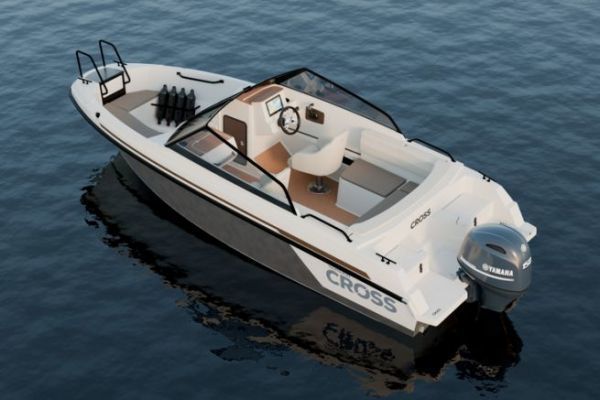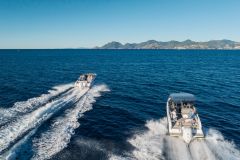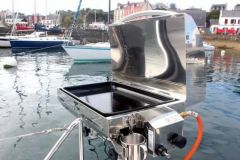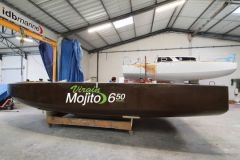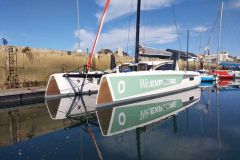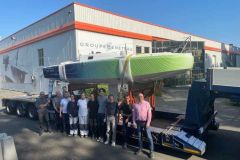The rise of natural fibers and recycled plastics in marine construction
Presented at the Helsinki International Boat Show 2025, the Yamarin Cross Concept Boat showcases the use of alternative materials in boatbuilding. This prototype incorporates flax fibers and recycled PET plastic to replace traditional composites. A responsible approach that shows the way to other shipyards in the sector.
Flax fibers: an alternative to fiberglass reinforcement
Traditionally, composite boats use fiberglass reinforcements combined with polyester resin. Here, Yamarin opts for flax fibers, a material with many advantages:
- Reduced carbon footprint: a 55% reduction in CO? emissions compared with fiberglass (source: Saertex).
- Weight savings: density of 1.5 g/cm³ vs. 2.54 g/cm³ for fiberglass.
- High mechanical strength: long fibers (up to 90 cm) ensure robustness for nautical requirements.
Part of the concept boat's deck is finished in transparent gelcoat, highlighting the natural texture of the linen.
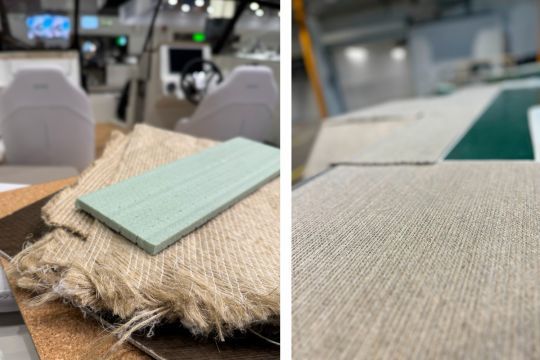
Recycling and innovation: PET as structural reinforcement
In addition to flax fibers, the Yamarin Cross Concept Boat replaces the PVC foams commonly used as reinforcements with recycled PET sheets. This approach enables :
- Reduce the use of materials of fossil origin.
- Reuse used plastic bottles for the boat's structure.
- Incorporate polyester resin containing 22% recycled PET.
Improving the environmental impact of stratification
The project goes beyond the choice of materials. The manufacturing process is based on vacuum infusion, a technique that :
- Reduces production waste.
- Eliminates styrene emissions during infusion.
- Improves the quality and precision of parts produced.
What's more, the Maxguard NP gelcoat used for this prototype reduces volatile organic compound (VOC) emissions by up to 50%, while ensuring greater durability in marine conditions.

Towards a greener future for boatbuilding
This project is part of a wider initiative by Yamaha Motor Corporation to achieve carbon-neutral production by 2035. Inha Works Ltd, the manufacturer of Yamarin boats, is continuing its research with trials under real conditions starting in the 2025 boating season.
The shipbuilding industry is seeing a gradual transition to more environmentally-friendly materials. If tests prove conclusive, this approach could well inspire the entire nautical industry.

